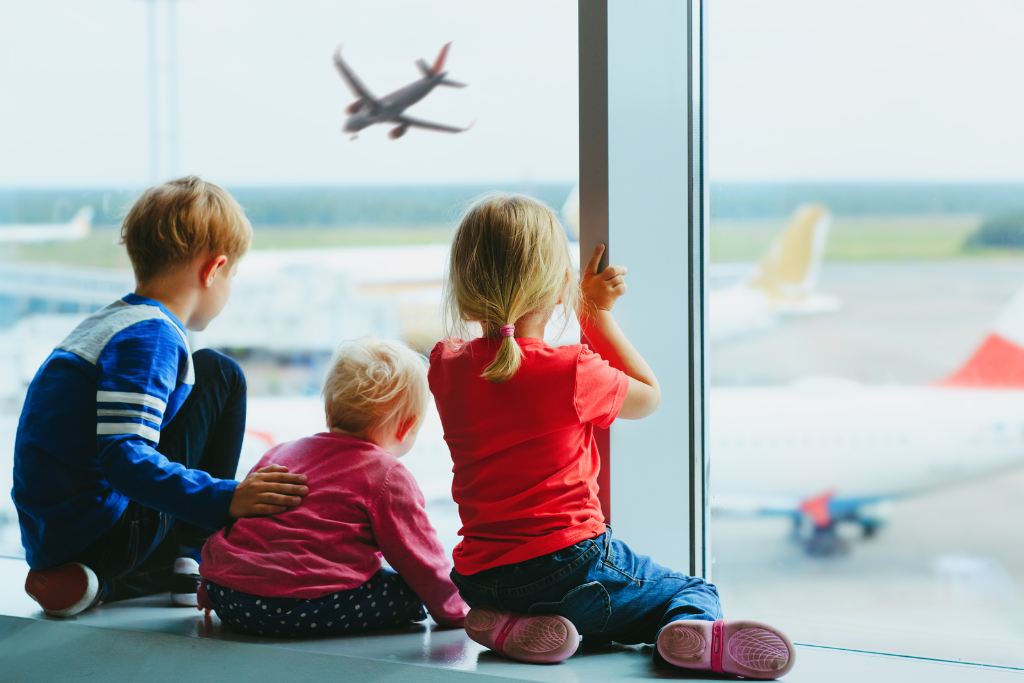In a world increasingly defined by mobility, the traditional educational model faces challenges in meeting the needs of traveling families, often digital nomad families. There are quite few, but the advent of nomadic schools presents an innovative solution we’ve never had before, sometimes even offering a seamless educational journey for children whose families are on the move.
Among these pioneering schools, the World Traveling School provides an in-person Montessori traveling school experience for children aged 3-12. This school leverages the Montessori academic curriculum, ensuring not just continuity in education but also a rich, hands-on learning experience regardless of geographical boundaries. The school’s commitment to traveling to three different countries each year ensures that children of traveling and digital nomad families receive a consistent, high-quality education. This approach not only caters to the academic needs of the children but also fosters a unique sense of community among traveling families, which is vital in their nomadic lifestyle.
The essence of nomadic schools
Nomadic schools represent a radical departure from traditional educational models, primarily through their mobility and adaptability. These schools understand the unique challenges faced by traveling families — maintaining educational continuity, adapting to new cultures, and ensuring their children’s social and emotional well-being. By traveling with the families they serve, nomadic schools like World Traveling School offer a stable learning environment that moves with the child, thereby eliminating the stress of adjusting to new educational systems with each move.
Building a community through education
One of the core strengths of nomadic schools is their ability to foster a strong sense of community among their students and families. This community is built on shared experiences, mutual support, and a collective journey of discovery across different cultures and geographies. This School, with its Montessori approach, places a strong emphasis on social interaction, collaborative learning, and cultural exchange, which naturally leads to the development of a close-knit community. This sense of belonging is particularly important for children and families who are constantly on the move, as it provides a stable social foundation in an otherwise transient lifestyle.
Montessori method: Facilitating social cohesion
The Montessori method, with its focus on self-directed activity, hands-on learning, and collaborative play, is particularly conducive to fostering community among nomadic school students. This educational approach encourages children to explore their environment, work in groups, and learn from each other, which not only enhances their academic growth but also their social and emotional development. In the context of a traveling school, these principles help children from diverse backgrounds to connect, understand, and respect each other’s cultures and perspectives, thus building a global community of learners who are empathetic and open-minded.
Nurturing global citizens
Beyond the academic curriculum, nomadic schools play a crucial role in nurturing global citizens. By exposing students to various cultures, languages, and ways of life, these schools broaden children’s horizons and instill in them a deep appreciation for diversity. This exposure is instrumental in developing empathy, tolerance, and a sense of global responsibility. The World Traveling School, through its travels across different countries, offers a real-world context for these lessons, making the learning experience more relevant and impactful. The bonds formed among students in this environment are based on shared experiences and mutual respect, transcending conventional boundaries and fostering a truly global community.
Overcoming challenges through community support
The nomadic lifestyle, while enriching, comes with its own set of challenges, including feelings of isolation and the logistical complexities of constant travel. Nomadic schools address these challenges by creating a supportive community for both children and their parents. This community becomes a network of support, where families share resources, advice, and experiences. Moreover, parental involvement in school activities strengthens this community, creating a collaborative environment where families are actively engaged in their children’s education and well-being. The shared commitment to providing a stable and enriching educational experience for their children further solidifies the bonds within this community.
The future of education for traveling families
As the world becomes more interconnected and mobile, the demand for flexible educational models like nomadic schools is likely to grow. These schools offer a viable solution for traveling families, ensuring their children receive a high-quality education tailored to their unique lifestyle. Moreover, the sense of community fostered by schools, providing a sense of stability and belonging that enriches the nomadic experience. This model not only benefits the children and families it serves but also contributes to the development of well-rounded, culturally aware individuals who are prepared to navigate the complexities of our global society.
Conclusion
Nomadic schools represent a transformative approach to education, one that aligns with the needs and values of traveling families. By providing a consistent, high-quality educational experience that transcends geographical boundaries, these schools ensure that the children of digital nomads receive the education they deserve. Furthermore, the strong sense of community fostered by schools like the World Traveling School is perhaps their most significant contribution, offering a stable social environment for children and families in an otherwise transient lifestyle.
The article How can nomadic world schools foster a sense of community among traveling families first appeared in TravelDailyNews International.


+ There are no comments
Add yours